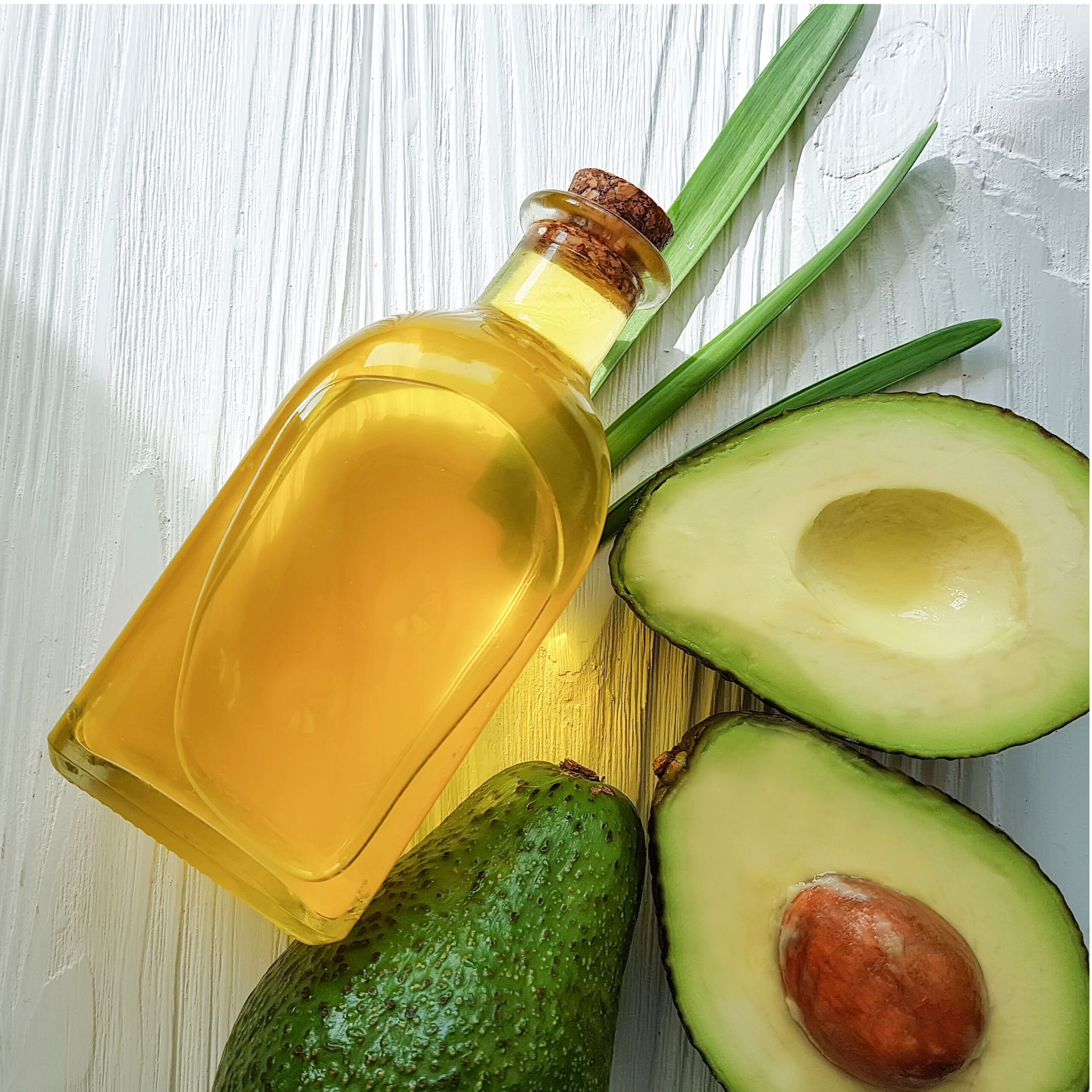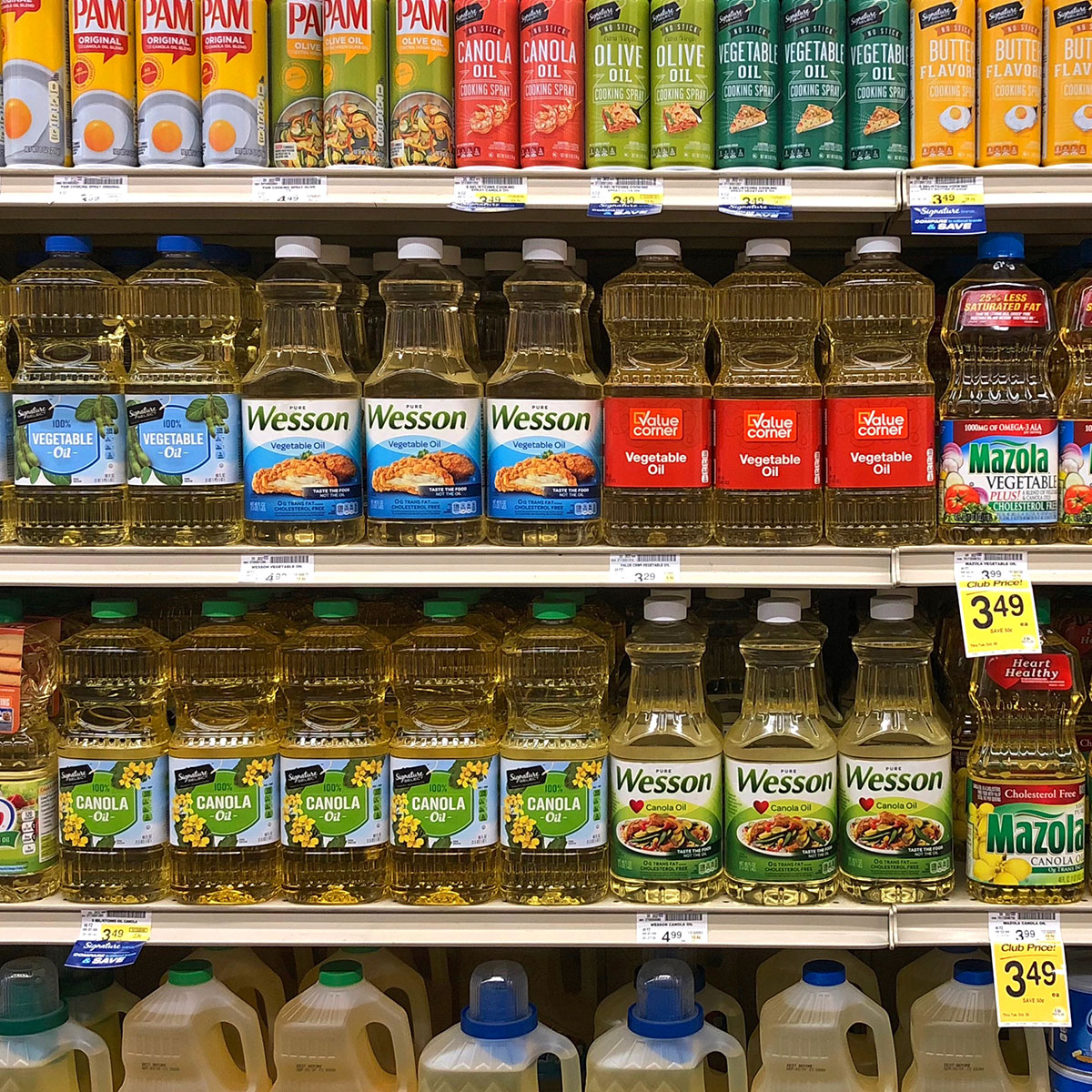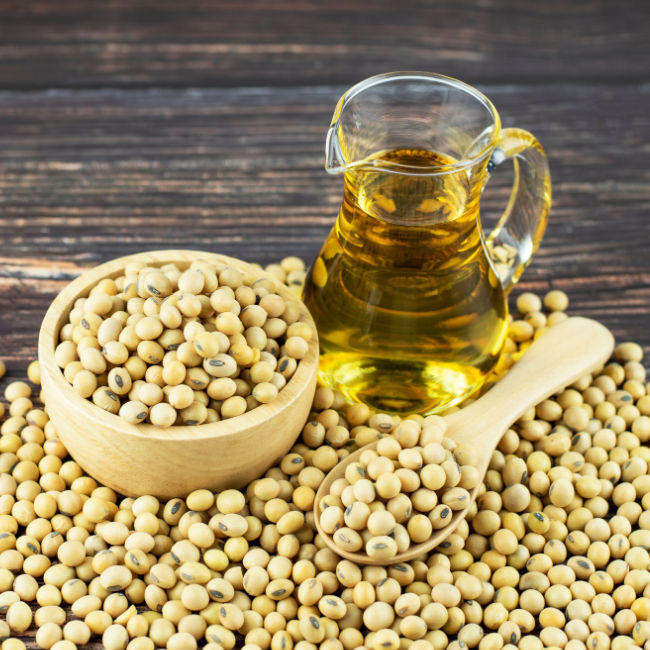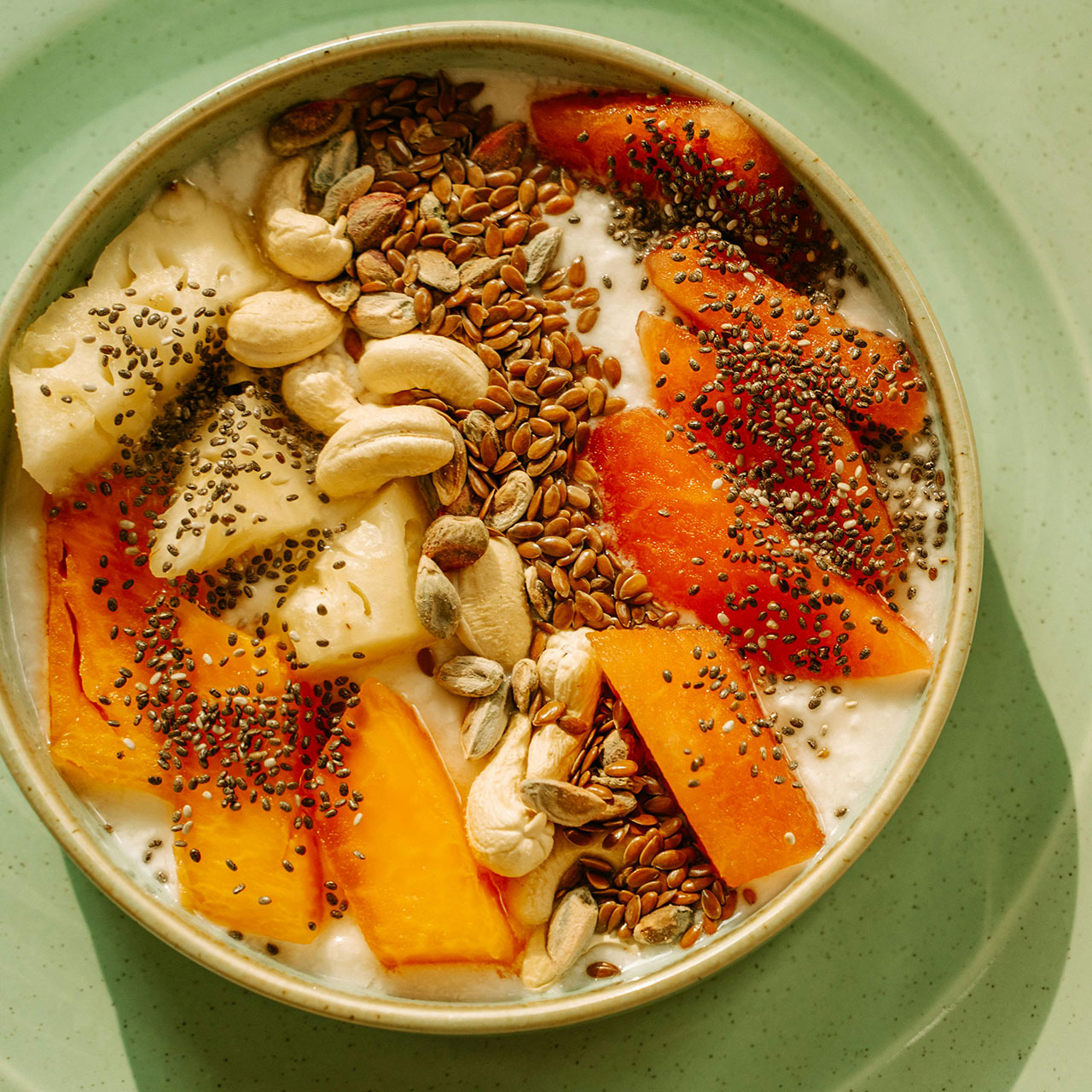If you want to live a long, healthy life and reduce your risk of chronic diseases, it’s crucial to make efforts to maintain a healthy diet. The food you eat plays a major role in every aspect of your health—especially when it comes to your heart. While the right foods can help you manage cholesterol levels, improve blood pressure, and decrease inflammation, many others can contribute to inflammation and raise your risk of heart disease. One important factor to consider is the type of oil you cook with.
To shed some light on the best and worst oils for your heart, we spoke to nutritionist Rimas Geiga, who shared his insights on the best and worst oils for heart health. He recommends extra virgin olive oil and avocado oil, but warns against partially hydrogenated vegetable oils and soybean oil. Learn more below.


Choose Extra Virgin Olive Oil
Extra virgin olive oil isn't only delicious. It's also well-known for its cardivascular benefits. Geiga confirms it as one of the healthiest options. "Extra virgin olive oil is packed with monounsaturated fats, which work to lower ‘bad’ LDL cholesterol and boost ‘good’ HDL cholesterol levels," he says. Olive oil is also rich in polyphenols. These antioxidants can help reduce inflammation and protect blood vessels, potentially decreasing your risk of heart disease over time.
However, like any other ingredient, moderation is crucial. "To keep these benefits intact, I often tell my clients to use olive oil in raw or lightly cooked dishes, like drizzling it over salads or cooked vegetables," Geiga says. Additionally, keep in mind that high heat can break down the nutrients in olive oil, so it’s best to cook at low temperatures or use it as a finishing touch.

Choose Avocado Oil
Avocado oil is another great, tasty, heart-healthy choice. It offers a wide range of cardiovascular benefits thanks to its high monounsaturated fat content. Geiga also notes that avocado oil is "rich in vitamin E, an antioxidant that helps reduce inflammation throughout the body." This oil is ideal for roasting or grilling, but all in all, its a highly versatile option.
"The combination of heart-healthy fats and anti-inflammatory compounds makes avocado oil a versatile option I often recommend to clients looking to manage or prevent heart disease and inflammatory conditions," Geiga praises.

Avoid Partially Hydrogenated Vegetable Oil
Not all cooking oils are equal in terms of healthy. One of the biggest offenders for heart health is partially hydrogenated vegetable oil, Geiga warns. "Partially hydrogenated oils contain trans fats, which can drastically raise ‘bad’ LDL cholesterol while lowering ‘good’ HDL cholesterol," he explains. This combination may increase your risk of heart disease and diabetes. These oils are commonly found in processed foods, so Geiga advises checking food labels to avoid them. "Even small amounts of trans fats can add up, which is why I emphasize to my clients the importance of avoiding these oils altogether," he says.

Avoid Soybean Oil
Soybean oil is another type to avoid if you're prioritizing your heart health. While omega-6 fatty acids are essential in small amounts, too much can disrupt the balance between omega-6s and omega-3s. Over time, this could contribute to chronic inflammation. "Soybean oil, commonly used in processed and fast foods, contains high levels of omega-6 fatty acids," Geiga says. According to him, this imbalance and inflammation could result in obesity and heart disease. "I advise my clients to limit foods high in soybean oil, especially if their diet includes other sources of processed fats, to maintain a healthier balance," he tells us. Got it!


























